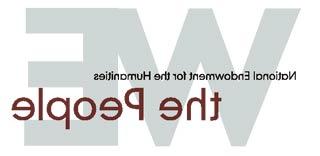糖业法案
介绍
In 1760, twenty-two-year-old monarch George III ascended the throne of England. The war with France that had stretched on for years and encircled the globe finally ends in 1763. Colonists are proud of their role in defeating the French, but England is faced with a vast territory to safeguard and a soaring debt to service. The French have been banished from the mainland continent of North America, 但另一个威胁依然存在. In 1763, in order to avoid confrontations with Indian nations, the English ministry issues a proclamation forbidding settlement to the west of the Appalachian Mountains.
In 1764, 乔治·格伦维尔, 第一财政大臣, proposes to strengthen the mother country's hold on its American investment. Addressing the King in his declaration of intent, Grenville argues that "it is just and necessary, 那就是增加税收, in your Majesty's said dominions in America, for defraying the expences of defending, 保护, 确保相同的." Working within the framework of earlier legislation regulating trade but for the first time directly imposing a tax on the colonists, 格伦维尔设计 带着牙齿的行为. British enforcement of trade regulations has been notoriously lax, and colonial merchants have grown rich and comfortable. 新的食糖法案, 他们惊愕地发现, cracks down on their smuggling, intrudes upon their lucrative West Indies trade, constrains commerce in a broad range of goods, ties up their vessels at port, creates a more elaborate and more invasive customs apparatus, and sends violators to jury-less vice admiralty courts for trial. 糖业法案, the merchants fear, will take a bite out of their profits.
The colonies have already been mired in a post-war depression. 糖业法案 worsens their trade balance just as Grenville and Parliament throw another punch. Henceforth, provincial governments are not allowed to issue their own paper currency. Since the colonists import (buy) more goods than they export (sell), 英镑, 王国的钱币, are inexorably drawn back to the motherland. 鉴于殖民者 sinking credit, sinking fortunes 触底. Colonial merchants complain, "Our Trade Is Most Grieviously Embarrassed," entreating their English friends and partners to take notice.
在波士顿, town meeting (the local government) carefully considers the Sugar Act and the impending Stamp Act. "We . . . declare our just expectations," 波士顿人宣布, as they assert their rights and advise their representatives to the Massachusetts legislature to stand firm for traditional prerogatives. 与此同时, 在纽约, American patriots urge their countrymen to cast off British luxuries and set about producing their own raw materials and home manufactures. Such self-sufficiency, they insist, will empower colonists to dispel their dread and become the “地球上最富有的人."
After the the Sugar Act goes into effect, Boston representative Thomas Cushing angrily writes Jasper Mauduit, Massachusetts' Parliamentary agent. The Assembly's petition to the king, 库欣抱怨, has been watered down by Lieutenant Governor Thomas Hutchinson and the legislature's upper house. Cushing directs Maudit to James Otis's Rights of the Colonies Asserted and Proved for a clear and direct statement of the "exclusive Right of the People."
The colonies are poised for the drama's next act. The cursed stamps are, gossip has it, bound for the colonies.
罗的革命
"Was much out of order today occasioned by the Distress the Town is in, occasioned principally by the failure of Mr Wheelwright. Was sent for this forenoon on My Friend Jos. 苏格兰人的事务. 他似乎非常苦恼. Was sent for by Sheriff Greenleaf on John Scollay's affairs. Did not go to Church, my mind too much disturbed."


![Pamphlet, Two Acts of Parliament [Sugar Act bound with the Molasses Act], (London, 1764)](/database/images/sugar_01_th.jpg)
![Pamphlet, An Act to prevent paper bills of credit [Currency Act], (London, 1764)](/database/images/currency_1_th.jpg)





